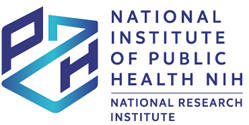Background. Globally, alcohol consumption is the major cause of mortality and disease. Future health and life quality may also be affected by early initiation of alcohol consumption. It is a cross-sectional design for a research survey.
Objective. This study aimed to investigate alcohol drinking behavior, the effects of alcohol consumption, and factors linked to alcohol drinking behavior among 410 secondary school students in grades 1-3 in the province of Nakhon Si Thammarat in southern Thailand.
Material and Methods. A simple sample was selected from a stratified random sample of 210 individuals. The data collection instrument was a questionnaire comprised of five sections and 78 items in total. The index of item objective congruence (IOC) of 0.90 and the reliability of 0.74 was used to evaluate the tool’s quality. To analyze the data, descriptive statistics and chi-square statistics were employed.
Results. The results of the study showed that a total of 40.0% of the participants had previously consumed alcohol, that men were more likely than women to drink (54.8%), that beer was the most popular alcoholic beverage (57.7%), that most people drank alcohol at night while at home (47.6%) and with friends (83.6%), the majority of participants (13.9%) drank alcohol one to three times per week, and their attitudes toward alcohol were moderate (85.7%). Religion, knowledge about alcohol use, and the amount of money received each month from habitat for humanity were not found to be linked to drinking alcohol.
Conclusion. The conclusion is that the use of alcohol by students is influenced by a wide variety of circumstances. Health professionals, educational institutions, and relevant agencies should use these factors to promote alcohol use prevention behaviors and formulate guidelines and measures to prevent this by designing an effective prevention program to reduce the alcohol use behaviors of children and young people in the appropriate manner.
You can change cookies settings in your browser. Restricted use of cookies in the browser configuration may affect some functionalities of the website.



